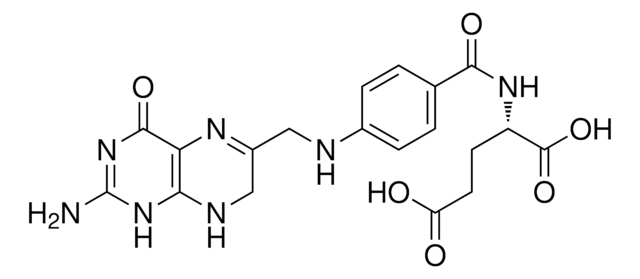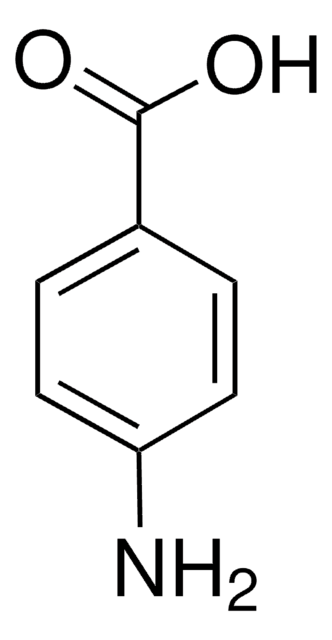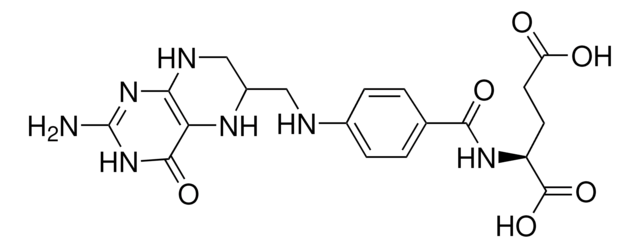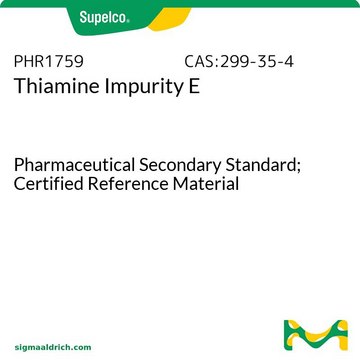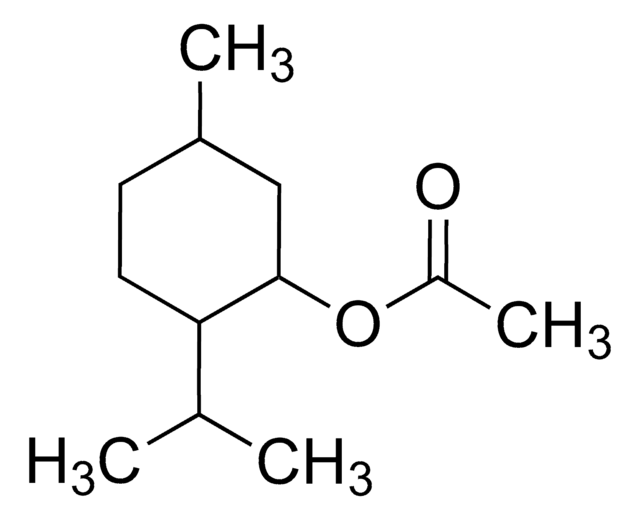A0879
N-(4-Aminobenzoyl)-L-glutamic acid
≥98% (TLC)
Synonym(s):
N-(p-Aminobenzoyl)glutamic acid
About This Item
Recommended Products
product name
N-(4-Aminobenzoyl)-L-glutamic acid, ≥98% (TLC)
Assay
≥98% (TLC)
form
powder
color
off-white to beige
mp
175 °C (dec.)
application(s)
detection
peptide synthesis
storage temp.
−20°C
SMILES string
Nc1ccc(cc1)C(=O)N[C@@H](CCC(O)=O)C(O)=O
InChI
1S/C12H14N2O5/c13-8-3-1-7(2-4-8)11(17)14-9(12(18)19)5-6-10(15)16/h1-4,9H,5-6,13H2,(H,14,17)(H,15,16)(H,18,19)/t9-/m0/s1
InChI key
GADGMZDHLQLZRI-VIFPVBQESA-N
Looking for similar products? Visit Product Comparison Guide
Application
Biochem/physiol Actions
Storage Class Code
11 - Combustible Solids
WGK
WGK 3
Flash Point(F)
Not applicable
Flash Point(C)
Not applicable
Personal Protective Equipment
Certificates of Analysis (COA)
Search for Certificates of Analysis (COA) by entering the products Lot/Batch Number. Lot and Batch Numbers can be found on a product’s label following the words ‘Lot’ or ‘Batch’.
Already Own This Product?
Find documentation for the products that you have recently purchased in the Document Library.
Customers Also Viewed
Our team of scientists has experience in all areas of research including Life Science, Material Science, Chemical Synthesis, Chromatography, Analytical and many others.
Contact Technical Service
